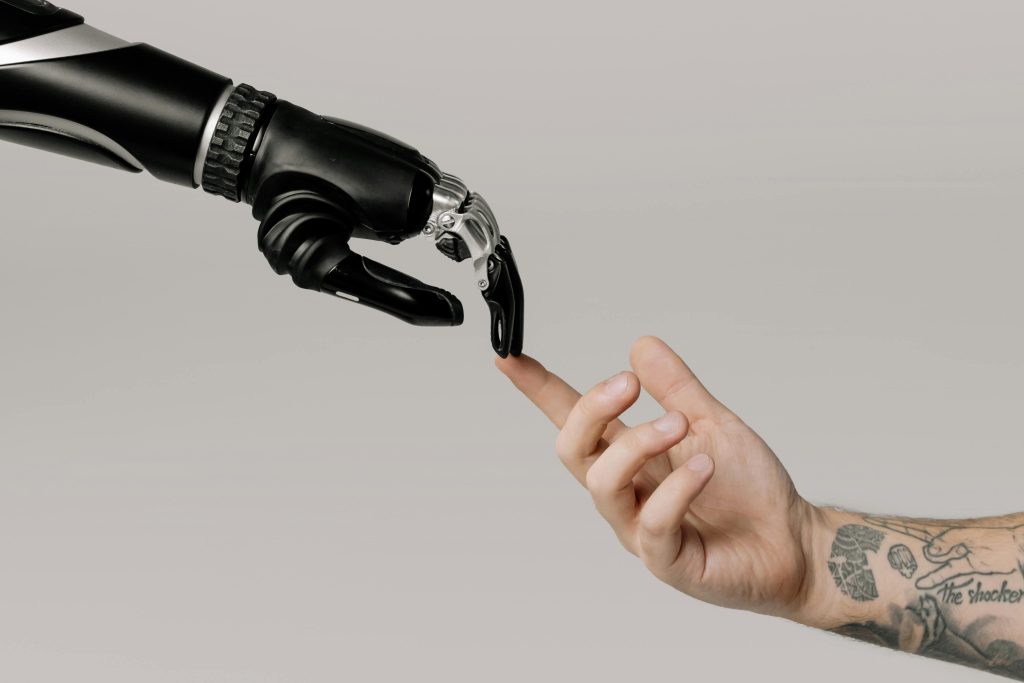
With AI now rapidly advancing, discussions abound as to its impact on human labor, creativity, and the future. AI has already reshaped industries by automating certain tasks, making processes much more efficient, and solving difficult problems. The big question remains: can AI replace humans in the coming years or decades? Let’s dive into possibilities, limitations, and implications.
1. AI Emergence: A Brief Perspective
AI has evolved from being a concept in science fiction to becoming a reality that shapes our daily lives. From chatbots and self-driving cars to AI-powered medical diagnoses and content creation, the technology is increasingly capable of performing tasks that were once considered uniquely human.
Key breakthroughs such as Generative AI (like ChatGPT and DALL-E) and Machine Learning have made it possible for machines to analyze data, learn patterns, and even mimic human creativity. These advancements raise concerns about whether AI could eventually replace humans in various fields.
2. Industries AI is Already Transforming
AI transforms industries through automation of the dull stuff, enhanced decision-making processes, and efficiency improvement. Let’s just take a few examples.
a. Manufacturing and Logistics
-Robots on the shop floor and in warehouses like Amazon’s fulfillment centers.
-Automated quality control systems and predictive maintenance.
b. Healthcare
-AI, for example, will correctly diagnose diseases with accuracy as cancer or heart conditions.
- Robotic surgery support and patient care.
c. Content Creation –
AI-generated articles, music, videos, and art (e.g. ChatGPT, MidJourney, and Jasper AI).
Automated content curation for social media.
d. Customer Service –
AI-powered chatbots and virtual assistants, provide instant answers, as well as 24/7 support.
e. Transportation –
Autonomous cars and drones revolutionizing logistics and public transport.
3. Can AI Replace Humans Completely?
What AI Does Well
- Automation: AI can do repetitive, predictable work such as data entry, sorting, and calculations.
- Data Analysis: AI can process large amounts of data at a rapid pace, spotting patterns that humans might not.
- Speed and Precision: In manufacturing or healthcare, AI provides unmatched accuracy and efficiency.
The Human Advantage
Despite its capabilities, AI lacks several key human traits:
- Creativity: While AI can mimic creativity, it doesn’t truly innovate or think outside the box.
- Emotional Intelligence: Machines cannot understand or empathize with human emotions, which is critical in fields like counseling, education, and leadership.
- Ethical Decision-Making: AI functions on data and algorithms, which can result in biases or decisions that lack moral judgment.
- Adaptability: Humans can think critically, adapt to unforeseen circumstances, and make intuitive leaps that AI struggles with.
4. Will AI Replace Jobs or Create New Opportunities?
For whatever jobs will be automated by advancements in technology, history clearly says that every new technology has offered new job opportunities:
- Jobs at Risk: Data entry, manufacturing routine work, basic roles in customer service, driving trucks.
- Emerging Roles: Jobs of AI trainers, ethics AI specialists, data scientists, and roles in new kinds of creative industries powered by artificial intelligence.
Upskilling and reskilling of the workforce for taking on new opportunities will be key.
5. Human-AI Collaboration: The Future is Not about replacement, but a perfect partnership between humans and AI.
- Increased Productivity: The mundane jobs are handled by AI so that the human brain focuses more on solving complex problems and innovation.
- Increased Creativity: Tools like Adobe Firefly and Canva AI enable designers to make things faster but in the same human way.
- More Sound Judgment: AI offers data-based insights, but human decision-making is based on intuition and judgment that take into account the context and ethics.
6. Ethical and Social Consequences The growth of AI brings with it several concerns:
- Layoff and Unemployment: Large-scale automation will affect unemployment in specific areas.
- Bias in AI: Algorithms are only as good as the data they are trained on, which can perpetuate biases.
- Privacy Concerns: AI’s reliance on data raises questions about surveillance and data security.
- Dependence on AI: Over-reliance on AI could lead to a loss of critical thinking and problem-solving skills among humans.
7. The Verdict: Replacement or Reinforcement?
In all probability, AI is unlikely to replace humans completely in the future. Instead, it is likely to be a tool for augmenting human capabilities that make our lives more efficient and productive. However, the rate of AI adoption will require individuals, organizations, and governments to pay careful attention to the ethical, social, and economic implications.
The secret to navigating this AI-driven future is in embracing change while ensuring that humanity retains its unique strengths of creativity, empathy, and moral judgment.
Conclusion
The world and work can be changed for the better by AI. This is not about humans against machines but rather about the future of how humans and AI can collaborate to create a better world. While jobs will disappear, new ones will emerge, driving innovation and progress.
The ultimate question is not whether AI will replace humans but how we can use AI to augment our potential in ways that are true to what makes us uniquely human.
